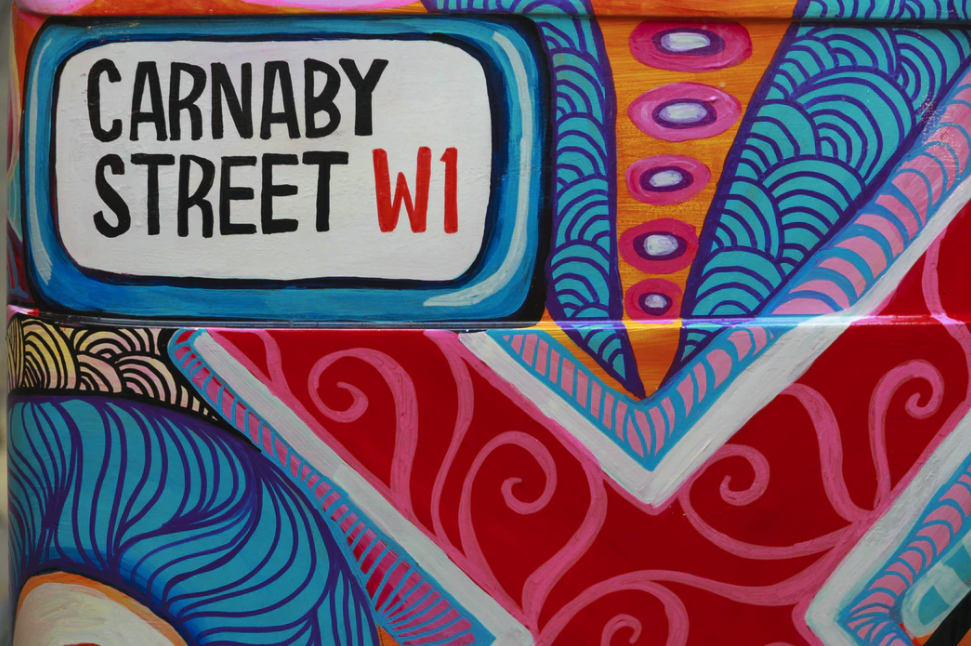6 very British idioms and where they really came from
Image via Jean-Philippe Delberghe
The British are a strange folk. It's thought that people have been populating this tiny island since 325 BC, and since those early years, it's suffered a ton of invasions from a ton of different countries.
When you consider its age and multiple linguistic influences, it's no wonder Britain has some of the most colourful idioms.
For those not in the know, an idiom is a turn of phrase that is figurative — its meaning is known through popular usage, not through the words within the phrase itself. Allow me to demo:
Bugger this for a game of soldiers
The meaning of this idiom has nothing to do with sexual intercourse, games or soldiers. We know—from common knowledge—that it means you can't be bothered with the task at hand.
We British have a rather colourful and sarcastic view of life, which makes our idioms particularly obscure and delightful, as I shall demonstrate:
Bent as a nine bob note
Here is a term used to describe someone dishonest. In recent years it's had the misfortune to be appropriated by homophobic idiots, but a brief look into the origin of its meaning will show you that 'bent' is the only fragment of this idiom which could be remotely related to homosexuality.
In the days before the decimal system hit (which was 1971, in case you were wondering), we had the ten shilling note. Back then, we gave our currency nicknames, and the ten shilling note was known as a 'bob note' or 'half a nicker'. Although the ten shilling note existed, there was no such thing as a nine shilling note — if you were handed one, it was fraudulent. Bent is derived from the term 'crooked', meaning dishonest. Bosh.
Don't buy shit from the back of that guy's van! Everyone knows he's bent as a nine bob note.
To pop one's clogs
Another gem from the seventies! The origin of this idiom is somewhat unclear, but most sources agree that it has something to do with factory workers dying — they used to wear clogs to work, you see.
Meaning is split between those who think it refers to workers pawning (or popping) their clogs because they knew they were going to croak, and those who think the phrase has been misheard. They suggest the original phrase was 'cock your clogs' because when you fell down dead on the floor, your clogs would be crooked. Either way, the phrase means to die.
Can I have this stereo when you pop your clogs?
Penny for your thoughts
This one's an oldie and dates all the way back to 1522 when Sir Thomas Moore wrote it in his book Four Last Things. Because a penny was such a vast sum in those days, it would be worth paying to discover the thoughts of someone wise, which is what the phrase actually refers to.
You've got a face like a smacked arse, Donald. Penny for your thoughts.
All mouth and no trousers
Do you have a mate that talks a big game but does very little to show they can deliver? Sounds like they're all mouth and no trousers.
This idiom relies on the understanding that it takes a lot of penis and balls to take action. It's a Northern turn of phrase (originating in Manchester, or so they say) and is the only idiom in this list to have its own reverse counterpart: all mouth and trousers. This term—as you might have guessed—refers to someone who's a bit of a Kanye West. You get my drift.
Gary said he could easily pull my mum if he wanted to, but if you ask me, he's all mouth and no trousers.
As the actress said to the bishop
This idiom feels a little like a line from a Carry On film, but it can be traced back as far as Edwardian times. It made its print debut in 1928 inMeet the Tiger by Leslie Charteris and is used as a saucy punchline to any sentence which could be construed as sexual. This is the very British version of the American idiom 'that's what she said'.
Me: *Eating a banana* man, I love bananas. I wish I could fit a whole one in my mouth.
Gary:...said the actress to the bishop.
Me: Shut up, Gary.
How's your father
This one is dedicated to my husband's Nan, who (much to my delight) still uses it. Unfortunately, she uses it in a context which is entirely her own: to describe someone who behaves oddly. The original meaning is as a euphemism for sexual intercourse. But don't tell her that.
The phrase has mixed origin stories but most sources agree it was popularised in the First World War (but it could be far older). This lends more weight to one of three suggested origin stories: soldiers in the Second World War visiting French prostitutes who were old enough to have serviced their fathers in the previous war. They'd recognise the family name and ask 'how's your father' before getting down to action. A little far-fetched, but I'll buy it.
Gary: Want to go for a beer later?
Me: Can't, mate. Gary Barlow's coming over for a bit of 'how's your father'.




